Ball State University’s economist says Indiana should focus much more energy and money into educating Hoosier students, so the state “isn’t left back a generation.” He says that doesn’t mean preparing a workforce of manufacturers.
“I don’t think the state is doing even a minimally adequate job of coming to grips with the fact that manufacturing employment in Indiana is not going to grow,” says Michael Hicks, director of Ball State’s Center for Business and Economic Research.
As part of his annual economic forecast, Hicks had harsh words for Indiana officials touting manufacturing jobs as the future of the state.
“Advanced manufacturing is always going to be important to Indiana, but we’re going to be doing it with fewer and fewer and fewer people," Hicks says. "So investing in that as a long-term strategy is going to robustly disappoint us.”
“In Delaware County, or east central Indiana, there are several dozen new job openings in advanced manufacturing every year," Hicks says. "We graduate several thousand students every year.”
National number show that cumulative job growth in the U.S. focuses almost completely on jobs for college graduates. But in Indiana, an overwhelming number of new jobs are targeted to those with less than a high school diploma. Hicks says that’s creating a poorly-educated Hoosier workforce which will not attract new high-paying jobs.
The economist says Indiana needs 10,000 more high school students a year go on to college, and needs at least half to graduate on time.
National Forecast
As for his 2020 national forecast, Hicks says he’s not predicting a recession, sort of. He says economists call it a “soft landing” – an economy that could fall into a recession "if we didn’t have a huge federal budget deficit, $1.1 trillion, farmer bailouts, and the federal reserve – which has lowered interest rates and added money through quantitative easing.”
Hicks predicts the country’s gross domestic product (GDP) dropping under 2 percent in the Midwest through 2020 and into 2021.
He says he also sees no “plausible end” to the trade war with China before the election, because China has no short-term reasons, like a national election, to fold to U.S. demands.
 DONATE
DONATE




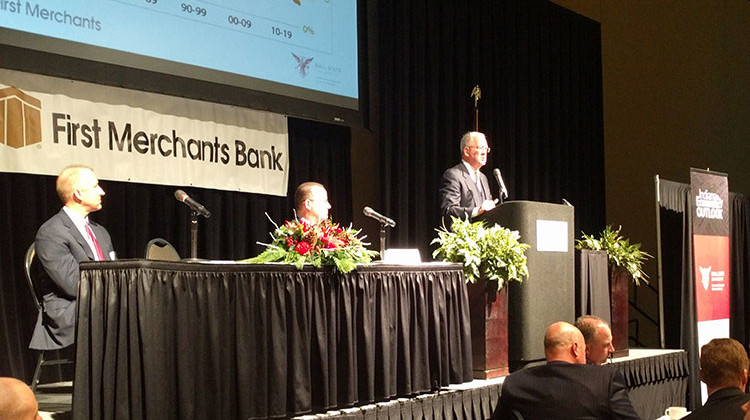
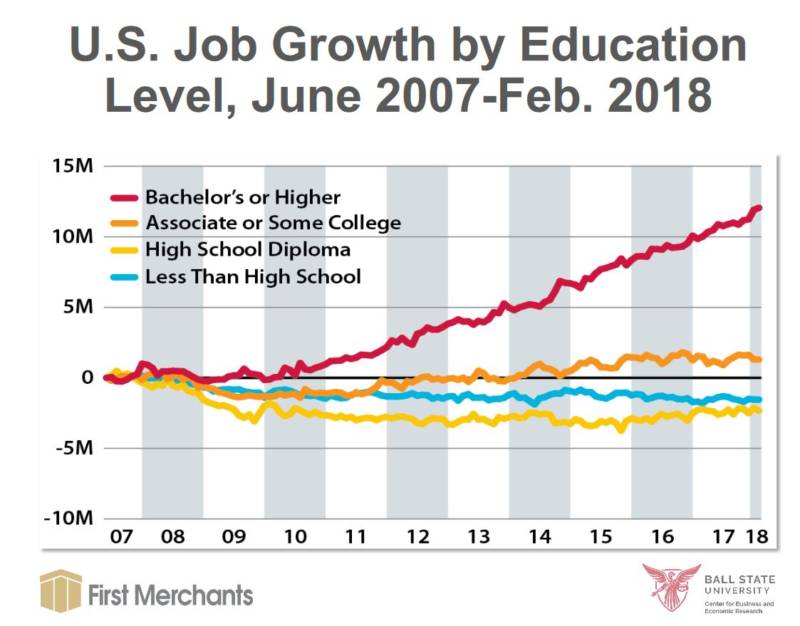
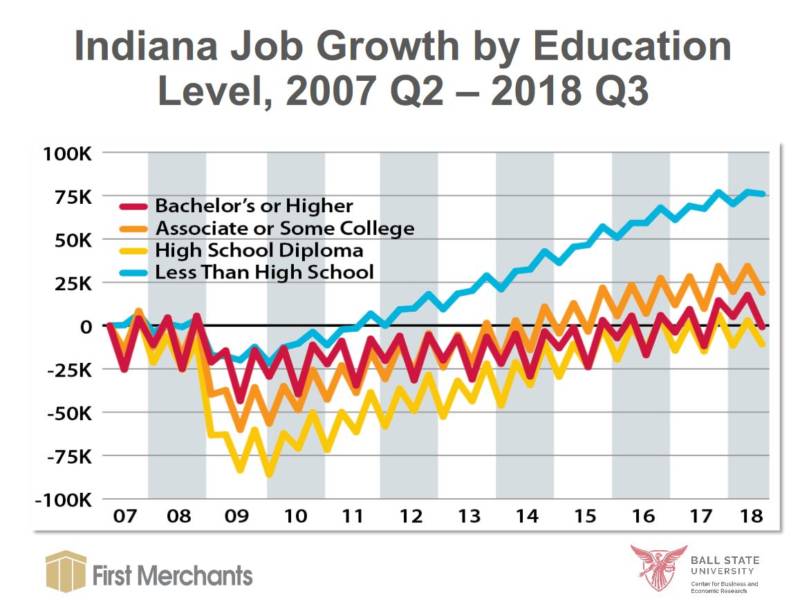
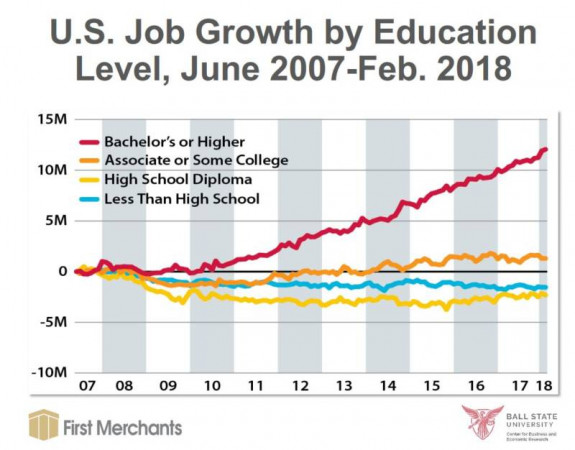
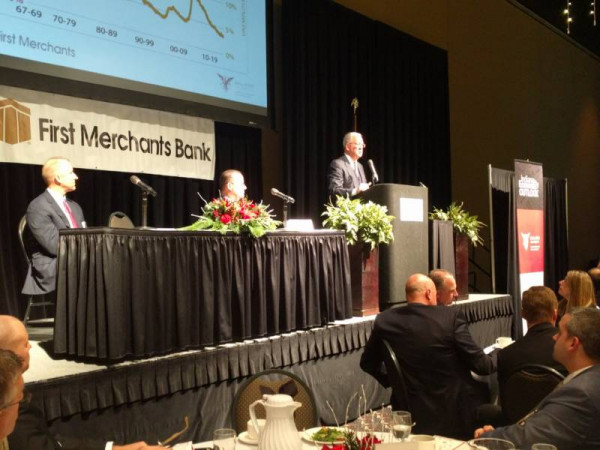
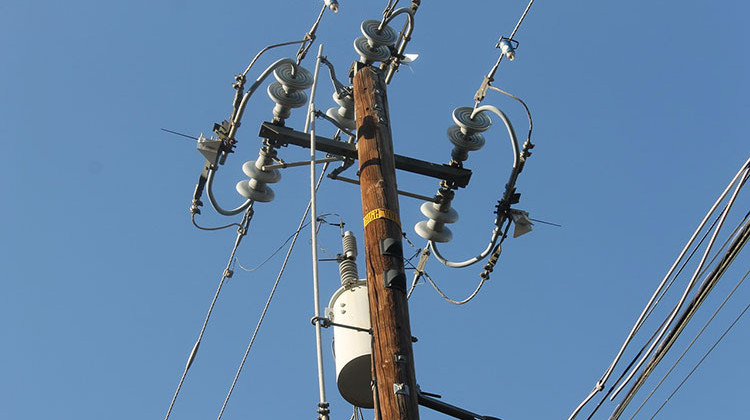

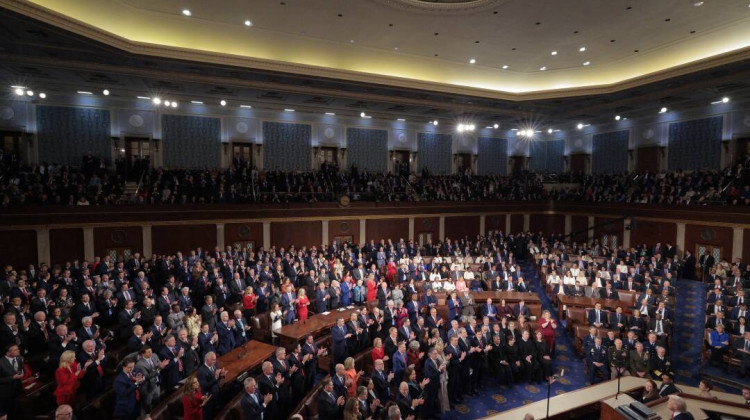


 Support WFYI. We can't do it without you.
Support WFYI. We can't do it without you.